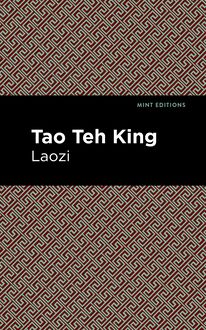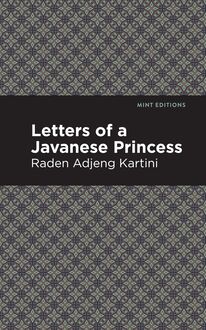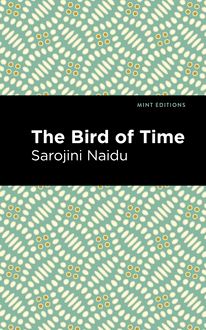-
 Univers
Univers
-
 Ebooks
Ebooks
-
 Livres audio
Livres audio
-
 Presse
Presse
-
 Podcasts
Podcasts
-
 BD
BD
-
 Documents
Documents
-
- Cours
- Révisions
- Ressources pédagogiques
- Sciences de l’éducation
- Manuels scolaires
- Langues
- Travaux de classe
- Annales de BEP
- Etudes supérieures
- Maternelle et primaire
- Fiches de lecture
- Orientation scolaire
- Méthodologie
- Corrigés de devoir
- Annales d’examens et concours
- Annales du bac
- Annales du brevet
- Rapports de stage
La lecture à portée de main

Vous pourrez modifier la taille du texte de cet ouvrage
Découvre YouScribe en t'inscrivant gratuitement
Je m'inscrisDécouvre YouScribe en t'inscrivant gratuitement
Je m'inscrisEn savoir plus
Vous pourrez modifier la taille du texte de cet ouvrage
En savoir plus

Description
When Orito and Numé were young children, their fathers, who were good friends, decided that one day their children would be betrothed. But before they marry, Orito is expected to complete his education. While Orito studied at a Japanese university, he and Numé remained good friends. But when his father makes plans for Orito to complete his education in America, set to return after eight years to marry Numé, she gets upset that Orito was leaving her, especially since she heard the plan from her father rather than Orito himself. Despite her disapproval, Orito goes to America to attend Harvard University. Experiencing culture shock and missing home, Orito feels out of place at first. But when he meets Cleo, a passionate dancer, they immediately start falling for each other, despite both of their engagements. As his time in America increases, Orito struggles with the decision to break tradition and stay with Cleo, or return home to marry Numé. Caught between cultures, expectation, and passion, Orito must decide which is more important to him.
Miss Numé of Japan: a Japanese American Romance by Onoto Watanna is a late 19th century romance that depicts a love triangle alongside the cultural contrasts between Japan and America. With beautiful descriptions, sympathetic characters, and a compelling romance-driven storyline, Miss Numé of Japan: a Japanese American Romance is entertaining while also providing intriguing insight into early interactions and cultural differences between Japan and the United States.
First published in 1899, Miss Numé of Japan: A Japanese American Romance is one of Onoto Watanna’s earliest works, and is rarely found in print. This special edition features a stunning cover design and is printed in an easy-to-read font. With these accommodations, this edition of Miss Numé of Japan: A Japanese American Romance caters to contemporary readers by restoring the novel to modern standards while preserving the original intricacy of Onoto Watanna’s work.
Sujets
Informations
| Publié par | Mint Editions |
| Date de parution | 23 février 2021 |
| Nombre de lectures | 0 |
| EAN13 | 9781513276540 |
| Langue | English |
| Poids de l'ouvrage | 4 Mo |
Informations légales : prix de location à la page 0,0450€. Cette information est donnée uniquement à titre indicatif conformément à la législation en vigueur.
Extrait
Miss Numè of Japan
A Japanese-American Romance
Onoto Watanna
Miss Numè of Japan: A Japanese-American Romance was first published in 1899.
This edition published by Mint Editions 2021.
ISBN 9781513271545 | E-ISBN 9781513276540
Published by Mint Editions®
minteditionbooks.com
Publishing Director: Jennifer Newens
Design & Production: Rachel Lopez Metzger
Project Manager: Micaela Clark
Typesetting: Westchester Publishing Services
C ONTENTS I . P ARENTAL A MBITIONS II . C LEO III . W HO C AN A NALYZE A C OQUETTE? IV . T HE D ANCE ON D ECK V . H ER G ENTLE E NEMY VI . A V EILED H INT VII . J EALOUSY W ITHOUT L OVE VIII . T HE M AN S HE D ID L OVE IX . M ERELY A W OMAN X . “ W ATCHING THE N IGHT” XI . A T THE J OURNEY’S E ND XII . T HOSE Q UEER J APANESE! XIII . T AKASHIMA’S H OME- C OMING XIV . A FTER E IGHT Y EARS XV . N UMÈ XVI . A N A MERICAN C LASSIC XVII . “ S TILL A C HILD” XVIII . T HE M EETING XIX . C ONFIDENCES XX . S INCLAIR’S I NDIFFERENCE XXI . “ M E? I L IG’ Y OU” XXII . A DVICE XXIII . A FRAID TO A NSWER XXIV . V ISITING THE T EA H OUSES XXV . S HATTERED H OPES XXVI . C ONSCIENCE XXVII . C ONFESSION XXVIII . J APANESE P RIDE XXIX . S ECLUSION XXX . F EMININE D IPLOMACY XXXI . A B ARBARIAN D INNER XXXII . T HE P HILOSOPHY OF L OVE XXXIII . W HAT C AN THAT “ L UF” B E? XXXIV . C ONSPIRATORS XXXV . A R ESPITE FOR S INCLAIR XXXVI . T HOSE B AD J INRIKISHA M EN XXXVII . T HOSE G OOD J INRIKISHA M EN XXXVIII . D ISPROVING A P ROVERB XXXIX . L OVE! XL . A P ASSIONATE D ECLARATION XLI . A H ARD S UBJECT TO H ANDLE XLII . A S TORY XLIII . T HE T RUTH OF THE P ROVERB XLIV . N UMÈ B REAKS D OWN XLV . T RYING TO F ORGET XLVI . A N O BSERVANT H USBAND XLVII . M ATSUSHIMA B AY XLVIII . A R EJECTED L OVER XLIX . T HE A NSWER L . T HE B ALL LI . T HE F EARFUL N EWS LII . T HE T RAGEDY LIII . A L ITTLE H EROINE LIV . S INCLAIR L EARNS THE T RUTH AT L AST LV . L OVERS A GAIN LVI . T HE P ENALTY LVII . T HE P ITY OF I T A LL LVIII . M RS. D AVIS’S N ERVES LIX . C LEO AND N UMÈ
I
P ARENTAL A MBITIONS
W hen Orito, son of Takashima Sachi, was but ten years of age, and Num è , daughter of Watanabe Omi, a tiny girl of three, their fathers talked quite seriously of betrothing them to each other, for they had been great friends for many years, and it was the dearest wish of their lives to see their children united in marriage. They were very wealthy men, and the father of Orito was ambitious that his son should have an unusually good education, so that when Orito was seventeen years of age, he had left the public school of Tokyo and was attending the Imperial University. About this time, and when Orito was at home on a vacation, there came to the little town where they lived, and which was only a very short distance from Tokyo, certain foreigners from the West, who rented land from Sachi and became neighbors to him and to Omi.
Sachi had always taken a great deal of interest in these foreigners, many of whom he had met quite often while on business in Tokyo, and he was very much pleased with his new tenants, who, in spite of their barbarous manners and dress, seemed good-natured and friendly. Often in the evening he and Omi would walk through the valley to their neighbors’ house, and listen to them very attentively while they told them of their home in America, which they said was the greatest country in the world. After a time the strange men went away, though neither Sachi nor Omi forgot them, and very often they talked of them and of their foreign home. One day Sachi said very seriously to his friend:
“Omi, these strangers told us much of their strange land, and talked of the fine schools there, where all manner of learning is taught. What say you that I do send my unworthy son, Orito, to this America, so that he may see much of the world, and also become a great scholar, and later return to crave thy noble daughter in marriage?”
Omi was fairly delighted with this proposal, and the two friends talked and planned, and then sent for the lad.
Orito was a youth of extreme beauty. He was tall and slender; his face was pale and oval, with features as fine and delicate as a girl’s. His was not merely a beautiful face; there was something else in it, a certain impassive look that rendered it almost startling in its wonderful inscrutableness. It was not expressionless, but unreadable—the face of one with the noble blood of the Kazoku and Samourai—pale, refined, and emotionless.
He bowed low and courteously when he entered, and said a few words of gentle greeting to Omi, in a clear, mellow voice that was very pleasing. Sachi’s eyes sparkled with pride as he looked on his son. Unlike Orito, he was a very impulsive man, and without preparing the boy, he hastened to tell him at once of their plans for his future. While his father was speaking Orito’s face did not alter from its calm, grave attention, although he was unusually moved. He only said, “What of Num è , my father?”
Sachi and Omi beamed on him.
“When you return from this America I will give you Num è as a bride,” said Omi.
“And when will that be?” asked Orito, in a low voice.
“In eight years, my son, and you shall have all manner of learning there, which cannot be acquired here in Tokyo or in Kyushu, and the manner of learning will be different from that taught anywhere in Japan. You will have a foreign education, as well as what you have learned here at home. It shall be thorough, and therefore it will take some years. You must prepare at once, my son; I desire it.”
Orito bowed gracefully and thanked his father, declaring it was the chief desire of his life to obey the will of his parent in all things.
Now Num è was a very peculiar child. Unlike most Japanese maidens, she was impetuous and wayward. Her mother had died when she was born, and she had never had any one to guide or direct her, so that she had grown up in a careless, happy fashion, worshiped by her father’s servants, but depending entirely upon Orito for all her small joys. Orito was her only companion and friend, and she believed blindly in him. She told him all her little troubles, and he in turn tried to teach her many things, for, although their fathers intended to betroth them to each other as soon as they were old enough, still Num è was only a little girl of ten, whilst Orito was a tall man-youth of nearly eighteen years. They loved each other very dearly; Orito loved Num è because she was one day to be his little wife, and because she was very bright and pretty; whilst Num è loved big Orito with a pride that was pathetic in its confidence.
That afternoon Num è waited long for Orito to come, but the boy had gone out across the valley, and was wandering aimlessly among the hills, trying to make up his mind to go to Num è and tell her that in less than a week he must leave her, and his beautiful home, for eight long years. The next day a great storm broke over the little town, and Num è was unable to go to the school, and because Orito had not come she became very restless and wandered fretfully about the house. So she complained bitterly to her father that Orito had not come. Then Omi, forgetting all else save the great future in store for his prospective son-in-law, told her of their plans. And Num è listened to him, not as Orito had done, with quiet, calm face, for hers was stormy and rebellious, and she sprang to her father’s side and caught his hands sharply in her little ones, crying out passionately:
“No! no! my father, do not send Orito away.”
Omi was shocked at this display of unmaidenly conduct, and arose in a dignified fashion, ordering his daughter to leave him, and Num è crept out, too stunned to say more. About an hour after that Orito came in, and discovered her rolled into a very forlorn little heap, with her head on a cushion, and weeping her eyes out.
“You should not weep, Num è ,” he said. “You should rather smile, for see, I will come back a great scholar, and will tell you of all I have seen—the people I have met—the strange men and women.” But at that Num è pushed him from her, and declared she wanted not to hear of those barbarians, and flashed her eyes wrathfully at him, whereat Orito assured her that none of them would be half as beautiful or sweet as his little Num è —his plum blossom; for the word Num è means plum blossom in Japanese. Finally Num è promised to be very brave, and the day Orito left she only wept when no one could see her.
And so Orito sailed for America, and entered a great college called “Harvard.” And little Num è remained in Japan, and because there was no Orito now to tell her thoughts to, she grew very subdued and quiet, so that few would have recognized in her the merry, wayward little girl who had followed Orito around like his very shadow. But Num è never forgot Orito for one little moment, and when every one else in the house was sound asleep, she would lie awake thinking of him.
II
C LEO
“ N o use looking over there, my dear. Takie has no heart to break—never knew a Jap that had, for that matter—cold sort of creatures, most of them.”
The speaker leaned nonchalantly against the guard rail, and looked half-amusedly at the girl beside him. She raised her head saucily as her companion addressed her, and the willful little toss to her chin was so pretty and wicked that the man laughed outright.
“No need for you to answer in words,” he said. “That wicked, willful look of yours bodes ill for the Jap’s—er—heart.”
“I would like to know him,” said the girl, slowly and quite soberly. “Really, he is very good-looking.”
“Oh! yes—I suppose so—for a Japanese,” her companion interrupted.
The girl looked at him in undisguised disgust for a moment.
“How ignorant you are, Tom!” she said, impatiently; “as if it makes the slightest difference what nationality he belongs to. Mighty lot you know about the Japanese.”
Tom wilted before this assault, and the girl took advantage to say: “Now, Tom, I want to know Mr.—a—a—T
Attention
En entrant sur cette page, vous certifiez :
- 1. avoir atteint l'âge légal de majorité de votre pays de résidence.
- 2. avoir pris connaissance du caractère érotique de ce document.
- 3. vous engager à ne pas diffuser le contenu de ce document.
- 4. consulter ce document à titre purement personnel en n'impliquant aucune société ou organisme d'État.
- 5. vous engager à mettre en oeuvre tous les moyens existants à ce jour pour empêcher n'importe quel mineur d'accéder à ce document.
- 6. déclarer n'être choqué(e) par aucun type de sexualité.
YouScribe ne pourra pas être tenu responsable en cas de non-respect des points précédemment énumérés. Bonne lecture !
-
 Univers
Univers
-
 Ebooks
Ebooks
-
 Livres audio
Livres audio
-
 Presse
Presse
-
 Podcasts
Podcasts
-
 BD
BD
-
 Documents
Documents
-
Jeunesse
-
Littérature
-
Ressources professionnelles
-
Santé et bien-être
-
Savoirs
-
Education
-
Loisirs et hobbies
-
Art, musique et cinéma
-
Actualité et débat de société
-
Jeunesse
-
Littérature
-
Ressources professionnelles
-
Santé et bien-être
-
Savoirs
-
Education
-
Loisirs et hobbies
-
Art, musique et cinéma
-
Actualité et débat de société
-
Actualités
-
Lifestyle
-
Presse jeunesse
-
Presse professionnelle
-
Pratique
-
Presse sportive
-
Presse internationale
-
Culture & Médias
-
Action et Aventures
-
Science-fiction et Fantasy
-
Société
-
Jeunesse
-
Littérature
-
Ressources professionnelles
-
Santé et bien-être
-
Savoirs
-
Education
-
Loisirs et hobbies
-
Art, musique et cinéma
-
Actualité et débat de société
- Cours
- Révisions
- Ressources pédagogiques
- Sciences de l’éducation
- Manuels scolaires
- Langues
- Travaux de classe
- Annales de BEP
- Etudes supérieures
- Maternelle et primaire
- Fiches de lecture
- Orientation scolaire
- Méthodologie
- Corrigés de devoir
- Annales d’examens et concours
- Annales du bac
- Annales du brevet
- Rapports de stage

















